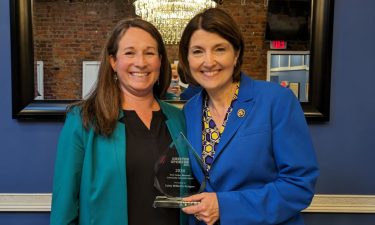Monday, February 22 serves as the fiscal committee cutoff for all bills introduced this session. What does this mean? Hundreds of bills were either amended to pass out of the fiscal committee or they will no longer proceed (unless they are deemed NTIB, or necessary to implement budget.” In next week’s newsletter, we will provide an update on pertinent bills that did not survive past the fiscal committee cutoff.
On Friday, February 19, Governor Inslee signed HB 1368 (sponsored by 3rd District Representative Timm Ormsby), which appropriate $2.2 billion in federal funding that has been allocated to states in response to the ongoing COVID emergency. Taking effect immediately, the bill provides:
- $714 million in assistance for K-12 schools
- $618 million for public health’s response to COVID, including testing, investigation and contact tracing; and funding for vaccination efforts
- $365 million for emergency eviction, rental and utility assistance
- $240 million for business assistance grants
- $50 million for child care
- $26 million for food banks and other food programs
- $91 million for income assistance, including $65 million for relief for the state’s immigrant population
Bill and Action Tracking
- SHB 1095—This legislation provides a business and occupation tax, a public utilities tax, and a retail sales tax exemption for qualifying grants received after February 29, 2020, that are related to a national or state emergency proclamation. Both the House and Senate passed this bill and it is waiting for the Governor’s signature.
- SHB 1333—This bill extends the expiration of the local sales and use tax for public facilities in rural counties until December 31, 2054. The extension only applies to those counties that imposed the full capacity of the tax prior to August 1, 2009. The substitute bill clarifies that the extension of the expiration of the tax rate applies to those counties that no longer meet the definition of a rural county, but met the definition as of August 1, 2009 (Whatcom & Benton).
- SHB 1170—This legislation establishes a goal to double the state’s manufacturing employment base in 10 years, requires the Department of Commerce to prepare a biennial report to the Legislature on the state of manufacturing in Washington and requires the Department to convene a manufacturing council to advice and consult on the development of the report and recommendations.
- SSB 5096—This bill, if passed, would impose a 7 percent capital gains tax on the sale or other voluntary exchange of long-term capital gains assets by individuals. The tax does not apply to real estate, retirement accounts, livestock related to farming or ranching, agricultural lands, assets acquired and used by a sole proprietorship and timber and timberlands.
- HB 1406—The bill establishes a one percent wealth tax on intangible financial assets of more than $1 billion.




